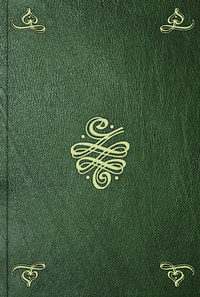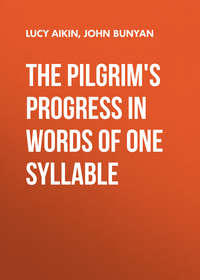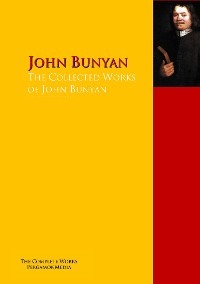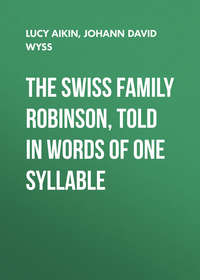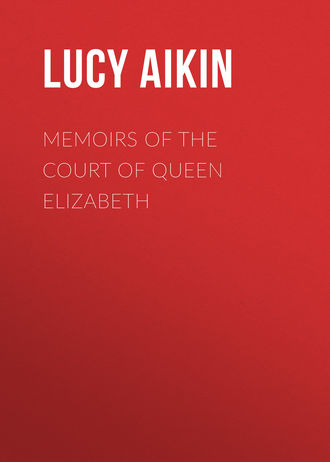 полная версия
полная версияMemoirs of the Court of Queen Elizabeth
For Anthony Bacon, the eldest of his sons by his second marriage, the lord keeper had handsomely provided by the gift of his manor of Gorhambury, and he had amassed a considerable sum with which he was about to purchase another estate for the portion of the younger, when death interrupted his design; and only one-fifth of this money falling to Francis under the provisions of his father's will, he unexpectedly found himself compelled to resort to the practice of some gainful profession for his support. That of the law naturally engaged his preference. He entered himself of Gray's Inn, and passed within its precincts several studious years, during which he made himself master of the general principles of jurisprudence, as well as of the rules of legal practice in his own country; and he also found leisure to trace the outlines of his new philosophy in a work not now known to exist in a separate state, but incorporated probably in one of his more finished productions. In 1588 her majesty, desirous perhaps of encouraging a more entire devotion of his talents to the study of the law, distinguished him by the title of her Counsel extraordinary,—an office of little emolument, though valuable as an introduction to practice. But the genius of Bacon disdained to plod in the trammels of a laborious profession; he felt that it was given him for higher and larger purposes: yet perceiving, at the same time, that the narrowness of his circumstances would prove an insuperable bar to his ambition of becoming, as he once beautifully expressed it, "the servant of posterity," he thus, in 1591, solicited the patronage of his uncle lord Burleigh: "Again, the meanness of my estate doth somewhat move me; for though I cannot accuse myself that I am either prodigal or slothful; yet my health is not to spend, nor my course to get: Lastly, I confess that I have as vast contemplative ends as I have moderate civil ends; for I have taken all knowledge to be my province; and if I could purge it of two sorts of rovers, whereof the one with frivolous disputations, confutations and verbosities, the other with blind experiments and auricular traditions and impostures, hath committed so many spoils, I hope I should bring in industrious observations, grounded conclusions, and profitable inventions and discoveries, the best state of that province. This, whether it be curiosity, or vain glory, or nature, or, if one take it favorably, philanthropia, is so fixed in my mind as it cannot be removed. And I do easily see, that place of any reasonable countenance doth bring commandment of more wits than a man's own; which is the thing I do greatly affect."
Burleigh was no philosopher, though a lover of learning, and it could not perhaps be expected that he should at once perceive how eminently worthy was this laborer of the hire which he was reduced to solicit. He contented himself therefore with procuring for his kinsman the reversion of the place of register of the Star-chamber, worth about sixteen hundred pounds per annum. Of this office however, which might amply have satisfied the wants of a student, it was unfortunately near twenty years before Bacon obtained possession; and during this tedious time of expectation, he was wont to say, "that it was like another man's ground abutting upon his house, which might mend his prospect, but it did not fill his barn." He made however a grateful return to the lord treasurer for this instance of patronage, by composing an answer to a popish libel, entitled "A Declaration of the true Causes of the late Troubles," in which he warmly vindicated the conduct of this minister, of his own father, and of other members of the administration; not forgetting to make a high eulogium on the talents and dispositions of Robert Cecil,—now the most powerful instrument at court to serve or to injure. Unhappily for the fortunes of Bacon, and in some respects for his moral character also, this selfish and perfidious statesman was endowed with sufficient reach of intellect to form some estimate of the transcendent abilities of his kinsman; and struck with dread or envy, he seems to have formed a systematic design of impeding by every art his favor and advancement. Unmoved by the eloquent adulation with which Bacon sought to propitiate his regard, he took all occasions to represent him to the queen, and with some degree of justice though more of malice, as a man of too speculative a turn to apply in earnest to the practical details of business; one moreover whose head was so filled with abstract and philosophical notions, that he would not fail to perplex any public affairs in which he might be permitted to take a lead. The effect of these suggestions on the mind of Elizabeth was greatly aggravated by the conduct of Bacon in the parliament of 1593, in consequence of which her majesty for a considerable time denied him that access to her person with which he had hitherto been freely and graciously indulged.
Some years before this period, Francis Bacon had become known to the earl of Essex, whose genuine love of merit induced him to offer him his friendship and protection. The eagerness with which these were accepted had deeply offended the Cecils; and their displeasure was about this time increased, on seeing Anthony Bacon, by his brother's persuasion, enlist himself under the banner of the same political leader.
Anthony, whose singular history is on many accounts worthy of notice, was a man of an inquisitive and crafty turn of mind, and seemingly born for a politician. He, like his brother, had been induced to pay a visit to France, as the completion of a liberal education; and not finding himself involved in the same pecuniary difficulties, he had been enabled to make his abode in that country of much longer duration. From Paris, which he first visited in 1579, he proceeded to Bourges, Geneva, Montpelier, Marseilles, Montauban and Bordeaux, in each of which cities he resided for a considerable length of time. At the latter place he rendered some services to the protestant inhabitants at great personal hazard. In 1584 he visited Henry IV., then king of Navarre, at Bearn, and in 1586 he contracted at Montauban an intimacy with the celebrated Hugonot leader, du Plessis de Mornay. As Anthony Bacon was invested with no public character, his continued and voluntary abode in a catholic country began at length to excite a suspicion in the mind of his mother, his friends, and the queen herself, that his conduct was influenced by some secret bias towards the Romish faith;—an impression which received confirmation from the intimacies which he cultivated with several English exiles and pensioners of the king of Spain. This idea appears, however, to have been unfounded. It was often by the express, though secret, request of Burleigh that he formed these connexions; and he had frequently supplied this minister with important articles of intelligence procured from such persons, with whom it was by no means unusual to perform the office of spy to England and to Spain alternately, or even to both at the same time. At length, the urgency of his friends and the clamors of his mother, whose protestant zeal, setting a sharper edge on a temper naturally keen, prompted her to employ expressions of great violence, compelled him, after many delays, to quit the continent; and in the beginning of 1592 he returned to his native country. His miserable state of health, from the gout and other disorders which rendered him a cripple for life, prevented his encountering the fatigues of the usual court attendance: yet he lost no time in procuring a seat in parliament; and his close connexion with the Cecils, joined to the opinion entertained of his political talents, seems to have excited a general expectation of his rising to high importance in the state. But he was not long in discovering, that for some unknown reason the lord treasurer was little his friend; and offended at the coolness with which his secret intelligence from numerous foreign correspondents was received by this minister and his son, in their joint capacity of secretaries of state, he was easily prevailed upon to address himself to Essex.
The earl had by this time learned, that there was no surer mode of recommending himself to her majesty, and persuading her of his extraordinary zeal for her service, than to provide her with a constant supply of authentic and early intelligence from the various countries of Europe, on which she kept a vigilant and jealous eye. He was accordingly occupied in establishing news-agents in every quarter, and the opportune offers of Anthony Bacon were accepted by him with the utmost eagerness. A connexion was immediately established between them, which ripened with time into so confidential an intimacy, that in 1595 the earl prevailed on Mr. Bacon to accept of apartments in Essex-house, which he continued to occupy till commanded by her majesty to quit them on the breaking out of the last rash enterprise of his patron.
Struck with the boundless affection manifested by Anthony towards his brother, with whom he had established an entire community of interests, Essex now espoused with more warmth than ever the cause of Francis. He strained every nerve to gain for him, in 1592, the situation of attorney-general: but Burleigh opposed the appointment; Robert Cecil openly expressed to the earl his surprise that he should seek to procure it for "a raw youth;" and her majesty declared that, after the manner in which Francis Bacon had stood up against her in parliament, admission to her presence was the only favor to which he ought to aspire. She added, that in her father's time such conduct would have been sufficient to banish a man the court for life. Lowering his tone, Essex afterwards sought for his friend the office of solicitor-general; but the same prejudices and antipathies still thwarted him: and finding all his efforts vain to establish him in any public station of honor or emolument, he nobly compensated his disappointment and relieved his necessities by the gift of an estate.
The spirit of Bacon was neither a courageous nor a lofty one. He too soon repented of his generous exertions in the popular cause, and sought to atone for them by so entire a submission of himself to her majesty, accompanied with such eloquent professions of duty, humility and profound respect, that we can scarcely doubt that a word of solicitation from the lips of Burleigh might have gained him an easy pardon. It is painful to think that any party jealousies, or any compliance with the malignant passions of his son, should so have poisoned the naturally friendly and benevolent disposition of this aged minister, that he could bear to withhold the offices of kindness from the nephew of his late beloved wife, and the son of one of his nearest friends and most cordial coadjutors in public life. But according to the maxims of court-factions his desertion of the Bacons might be amply justified;—they had made their election, and it was the patronage of Essex which they preferred. Experience taught them too late, that for their own interests they had chosen wrong. Since the death of Leicester, the Cecils had possessed all the real power at the court of Elizabeth: they and they only could advance their adherents. Essex, it is true, through the influence which he exerted over the imagination or the affections of the queen, could frequently obtain grants to himself of real importance and great pecuniary value. But her majesty's singular caprice of temper rendered her jealous of every mark of favor extorted from the tender weakness of her heart; and she appears to have almost made it a rule to compensate every act of bounty towards himself, by some sensible mortification which she made him suffer in the person of a friend. So little was his patronage the road to advancement, that sir Thomas Smith, clerk of the council, is recorded as the solitary instance of a man preferred out of his household to the service of her majesty; and Bacon himself somewhere says, speaking of the queen, "Against me she is never positive but to my lord of Essex."
Fulk Greville was one of the few who did honor to themselves by becoming at this time the advocate of Francis Bacon with the queen; and his solicitations were heard by her with such apparent complacency, that he wrote to Bacon, that he would wager two to one on his chance of becoming attorney, or at least solicitor-general. But Essex was to be mortified, and the influence of this generous Mæcenas was exerted finally in vain. To his unfortunate choice of a patron then, joined to the indiscreet zeal with which that patron pleaded his cause "in season and out of season," we are to ascribe in part the neglect experienced by Bacon during the reign of Elizabeth. But other causes concurred, which it may be interesting to trace, and which it would be injustice both to the queen and to Burleigh to pass over in silence.
At the period when Bacon first appealed to the friendship of the lord treasurer in the letter above cited, he was already in the thirtieth year of his age, and had borne for two years the character of queen's counsel extraordinary; but to the courts of law he was so entire a stranger that it was not till one or two years afterwards that we find him pleading his first cause. It was pretty evident therefore in 1592, when he sought the office of attorney-general, that necessity alone had made it the object of his wishes; and his known inexperience in the practice of the law might reasonably justify in the queen and her ministers some scruple of placing him in so responsible a post. As a philosopher indeed, no encouragement could exceed his deserts; but this was a character which very few even of the learned of that day were capable of appretiating. Physical science, disgraced by its alliance with the "blind experiments" of alchemy and the deluding dreams of judicial astrology, was in possession of few titles to the respect of mankind; and its professors,—credulous enthusiasts, for the most part, or designing impostors,—usually ended by bringing shame and loss on such persons as greedy hopes or vain curiosity bribed to become their patrons.
That general "Instauration" of the sciences which the mighty genius of Bacon had projected, was a scheme too vast and too profound to be comprehended by the minds of Elizabeth and her statesmen; and as it was not of a nature to address itself to their passions and interests, we must not wonder if they should have regarded it with indifference. At this period, too, it existed only in embryo; and so little was the public intellect prepared to seize the first hints thrown out by its illustrious author, that even many years afterwards, when his system had been produced to the world nearly in a state of maturity, the general sentiment seems pretty much to have corresponded with the judgement of king James, "that the philosophy of Bacon was like the peace of God, which passeth all understanding."
All these considerations, however, are scarcely sufficient to vindicate the boasted discernment of Elizabeth from disgrace, in having suffered the most illustrious sage of her reign and country, who was at the same time its brightest wit and most accomplished orator, known to her from his birth, and the son of a wise and faithful servant whose memory she held in honor,—to languish in poverty and discouragement;
useless to herself and to the public affairs, and a burthen to his own thoughts.
The king of France found it expedient about this time to declare himself a convert to the church of Rome. For this change of religion, whether sincere or otherwise, he might plead, not only the personal motive of gaining possession of the throne of his inheritance, which seemed to be denied to him on other terms, but the patriotic one of rescuing his exhausted country from the miseries of a protracted civil war; and whatever might be the decision of a scrupulous moralist on the case, it is certain that Elizabeth at least had small title to reprobate a compliance of which, under the reign of her sister, she had herself set the example. But the character of the protestant heroine with which circumstances had invested her, obliged her to overlook this inconsistency; and as demonstrations cost her little, she not only indicted on the occasion a solemn letter of reproof to her ally, but actually professed herself so deeply wounded by his dereliction of principle, that it was necessary for her to tranquillize her mind by the perusal of many pious works, and the study of Boethius on consolation, which she even undertook the task of translating. Essex, whom she honored with a sight of her performance, was adroit enough to suggest to the royal author, as a principal motive of his urgency with her to restore Francis Bacon to her favor, the earnest desire which he felt that her majesty's excellent translations should be viewed by those most capable of appretiating their merits.
The indignation of Elizabeth against Henry's apostasy was not however so violent as to exclude the politic consideration, that it was still her interest to support the king of France against the king of Spain; and besides continuing her wonted supplies, she soon after entered with him into a new engagement, purporting that they should never make peace but by mutual consent.
Bretagne was still the scene of action to the English auxiliaries. Under sir John Norris, their able commander, they shared in the service of wresting from the Spaniards, by whom they had been garrisoned, the towns of Morlaix, Quimpercorentin and Brest; their valor was every where conspicuous; and the eagerness of the young courtiers of Elizabeth to share in the glory of these enterprises rose to a passion, which she sometimes thought it necessary to repress with a show of severity; as in the following instance related by Naunton.
Sir Charles Blount, afterwards lord Montjoy, "having twice or thrice stolen away into Bretagne (where under sir John Norris he had then a company) without the queen's leave and privity, she sent a messenger unto him, with a strict charge to the general to see him sent home. When he came into the queen's presence, she fell into a kind of reviling, demanding how he durst go over without her leave? 'Serve me so,' quoth she, 'once more, and I will lay you fast enough for running; you will never leave it until you are knocked on the head, as that inconsiderate fellow Sidney was. You shall go when I send you, and in the meantime see that you lodge in the court,' (which was then at Whitehall) 'where you may follow your book, read and discourse of the wars.'"
Philip II., unable to win glory or advantage against Elizabeth in open and honorable warfare, sought a base revenge upon her by proposing through secret agents vast rewards to any who could be brought to attempt her destruction. It was no easy task to discover persons sufficiently rash, as well as wicked, to undertake from motives purely mercenary a villany of which the peril was so appalling; but at length Fuentes and Ibarra, joint governors of the Netherlands, succeeded in bribing Dr. Lopez, domestic physician to the queen, to mix poison in her medicine. Essex, whose watchfulness over the life of his sovereign was remarkable, whilst his intelligences were comparable in extent and accuracy to those of Walsingham himself, was the first to give notice of this atrocious plot. At his instance Lopez was apprehended, examined before himself, the treasurer, the lord admiral, and Robert Cecil, and committed to custody in the earl's house. But nothing decisive appearing on his first examination, Robert Cecil took occasion to represent the charge as groundless; and her majesty, sending in heat for Essex, called him "rash and temerarious youth," and reproached him for bringing on slight grounds so heinous a suspicion upon an innocent man. The earl, incensed to find his diligent service thus repaid, through the successful artifice of his enemy, quitted the presence in a paroxysm of rage, and, according to his practice on similar occasions, shut himself up in his chamber, which he refused to quit till the queen herself two or three days afterwards sent the lord admiral to mediate a reconciliation.
Further interrogatories, mingled probably with menaces of the torture, brought Lopez to confess the fact of his having received the king of Spain's bribe; but he persisted in denying that it was ever in his thoughts to perpetrate the crime. This subterfuge did not, however, save him from an ignominious death, which he shared with two other persons whom Fuentes and Ibarra had hired for a similar undertaking.
The Spanish court disdained to return any satisfactory answer to the complaints of Elizabeth respecting these designs against her life; but either shame, or more likely the fear of reprisals, seems to have deterred it from any repetition of experiments so perilous.
About two years afterwards, however, an English Jesuit named Walpole, who was settled in Spain and intimately connected with the noted father Parsons, instigated an attempt worthy of record, partly as a curious instance of the exaggerated ideas then prevalent of the force of poisons. In the last voyage of Drake to the West Indies, a small vessel of his was captured and carried into a port of Spain, on board of which was one Squire, formerly a purveyor for the queen's stables. With this prisoner Walpole, as a diligent servant of his Church, undertook to make himself acquainted; and finding him a resolute fellow, and of capacity and education above his rank, he spared no pains to convert him to popery. This step gained, he diligently plied him with his jesuitical arguments, and so thoroughly persuaded him of the duty and merit of promoting by any kind of means the overthrow of heresy, that Squire at length consented to bind himself by a solemn vow to make an attempt against the life of Elizabeth in the mode which should be pointed out to him:—an enterprise, as he was assured, which would be attended with little personal danger, and, in case of the worst, would assuredly be recompensed by an immediate admission into the joys of heaven.
Finally the worthy father presented to his disciple a packet of some poisonous preparation, which he enjoined him to take an opportunity of spreading on the pommel of the queen's saddle. The queen in mounting would transfer the ointment to her hand; with her hand she was likely to touch her mouth or nostrils; and such, as he averred, was the virulence of the poison that certain death must follow.
Squire returned to England, enlisted for the Cadiz expedition, and on the eve of its sailing took the preparation and disposed of it as directed. Desirous of adding to his merits, he found means during the voyage to anoint in like manner the arms of the earl of Essex's chair. The failure of the application in both instances greatly surprised him. To the Jesuit it appeared so unaccountable, that he was persuaded Squire had deceived him; and actuated at once by the desire of punishing his defection, and the fear of his betraying such secrets of the party as had been confided to him, he consummated his villany by artfully conveying to the English government an intimation of the plot. Squire was apprehended, and at first denied all: "but by good counsel, and the truth working withal," according to Speed's expression, was brought to confess what could not otherwise have been proved against him, and suffered penitently for his offence. Our chronicler admires the providence which interfered for the protection of her majesty in this great peril, and compares it to the miraculous preservation of St. Paul from the bite of the viper.
The Jesuits are supposed to have employed more efficacious instruments for the destruction of Ferdinando earl of Derby, who died in April 1594. This nobleman had the misfortune to be grandson of Eleanor countess of Cumberland, the younger daughter of Mary queen dowager of France and sister of Henry VIII. by her second husband Charles Brandon duke of Suffolk; and although the children of lady Catherine Grey countess of Hertford obviously stood before him in this line of succession, occasion was taken by the Romish party from this descent to urge him to assume the title of king of England. One Hesket, a zealous agent of the Jesuits and popish fugitives, was employed to tamper with the earl, who on one hand undertook that his claim should be supported by powerful succours from abroad, and on the other menaced him with certain and speedy death in case of his rejecting the proposal or betraying its authors. But the earl was too loyal to hesitate a moment. He revealed the whole plot to government, and Hesket on his information was convicted of treason and suffered death.


